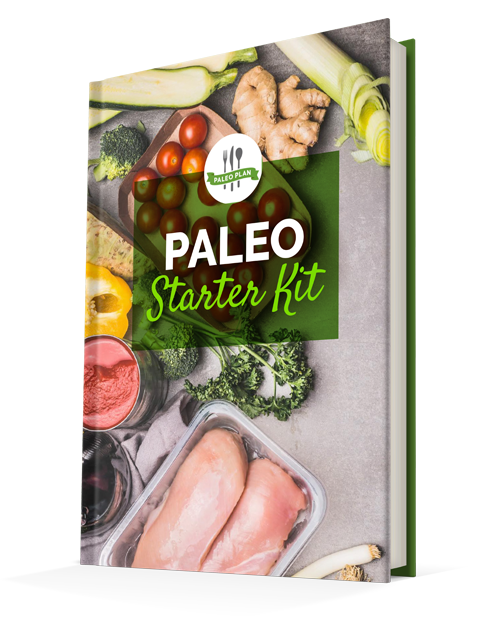 “Let’s have coffee sometime!” It’s a familiar refrain isn’t it? Coffee is a conversation starter, an excuse to get together and a neurological stimulant. From 16th century “Schools of the Wise” in the Near East that fostered culture and discussion of current events to 17th century “Penny Universities” in England where you could purchase a cup of coffee for a penny and “engage in stimulating conversation” and on to the rise of modern era coffee establishments (Starbucks anyone?), coffee has brought people together, injected energy into discourse and stimulated higher thinking (c’mon, plenty of people get a lot of important work done at Starbucks!).
“Let’s have coffee sometime!” It’s a familiar refrain isn’t it? Coffee is a conversation starter, an excuse to get together and a neurological stimulant. From 16th century “Schools of the Wise” in the Near East that fostered culture and discussion of current events to 17th century “Penny Universities” in England where you could purchase a cup of coffee for a penny and “engage in stimulating conversation” and on to the rise of modern era coffee establishments (Starbucks anyone?), coffee has brought people together, injected energy into discourse and stimulated higher thinking (c’mon, plenty of people get a lot of important work done at Starbucks!).
The Pros of Drinking Coffee
There are over 1000 chemicals in coffee that provide aroma, taste and bioactivity. Fortunately for our general understanding, the literature has teased out a few compounds, namely chlorogenic acids and caffeine that seem to be largely responsible for coffee’s reported health benefits. Chlorogenic acids (CGAs) are the most abundant antioxidants in coffee composing up to 12% of the dry weight of green unroasted coffee beans. Antioxidants prevent oxidative damage to cells that result in aging and disease and although coffee is absorbed in the stomach and the small intestine, some CGA antioxidants make it to the colon where they may act as a prebiotic by stimulating the growth of healthy bacteria.
When coffee beans are roasted, up to half the CGAs degrade which creates coffee’s bitter taste and brown color and as you might expect, dark roasts contain fewer CGAs than light roasts. The concentration of CGAs in a cup of coffee varies widely from 20-675mg per cup depending on roasting time and temperature, brewing method and the original content of the beans, with Robusta beans containing higher levels than Arabica beans (and almost double the caffeine content). Coffee also contains small but appreciable amounts of potassium, magnesium, manganese, pantothenic acid and riboflavin.
 Caffeine plays a role in the coffee plant’s system of defense. An alkaloid that acts as a neurotoxin to predatory insects; caffeine paralyzes and kills them. Extremely large doses of caffeine can kill humans too but it’s really hard to drink that much (It would take 118 cups of coffee or 175 shots of espresso). Caffeine acts as a stimulant by blocking adenosine, a neurotransmitter that increases feelings of tiredness while increasing the firing of other neurotransmitters including dopamine, which enhances mood and norepinephrine, which boosts alertness.
Caffeine plays a role in the coffee plant’s system of defense. An alkaloid that acts as a neurotoxin to predatory insects; caffeine paralyzes and kills them. Extremely large doses of caffeine can kill humans too but it’s really hard to drink that much (It would take 118 cups of coffee or 175 shots of espresso). Caffeine acts as a stimulant by blocking adenosine, a neurotransmitter that increases feelings of tiredness while increasing the firing of other neurotransmitters including dopamine, which enhances mood and norepinephrine, which boosts alertness.
Although coffee increases blood pressure, blood sugar, and insulin resistance, these effects appear to be temporary and diminish over time with habitual consumption. Coffee’s negative effect on LDL cholesterol (should you Paleo peeps even care about that) is effectively resolved with the use of filters during brewing which removes kahweol and cafestol, the substances responsible for this effect. On the other hand, these two substances are known to be anti-inflammatory and anti-carcinogenic so if you want to keep them in your coffee, stick to espresso or use a French press.
The amount of caffeine in coffee varies greatly. Compare 180mg caffeine in a short 8oz Starbucks to 100mg caffeine per 8oz cup used in most studies. That noted, studies show that whether you’re drinking as little as 1/3 cup or as much as 6 cups a day, coffee’s caffeine content and plethora of antioxidants (and very likely other compounds as well – with synergistic effect) are what lends coffee the following associated health benefits:
- Better mood, memory, feelings of alertness and reaction time
- Increased fat burning
- Improved athletic performance
And a reduction in risk of:
- Dementia, Alzheimer’s and Parkinson’s
- Gallstones
- Type 2 Diabetes
- Gout
- Cirrhosis and liver cancer
- Prostate, oral/pharyngeal, premenopausal breast and other cancers
- Suicide
- Death by all causes including cardiovascular disease
The Cons of Drinking Coffee
 Heartburn: Both caffeine and CGAs can cause heartburn by stimulating gastric acid secretion. Interestingly, decaffeinated coffee can be just as irritating as regular because decaf retains its CGA content.
Heartburn: Both caffeine and CGAs can cause heartburn by stimulating gastric acid secretion. Interestingly, decaffeinated coffee can be just as irritating as regular because decaf retains its CGA content.
Inflammation: Coffee can contribute to systemic inflammation by increasing circulating white blood cells and inflammatory cytokines. Furthermore, coffee is potentially cross-reactive with gluten. If you have celiac disease or suspect you are intolerant to gluten or have any other type of autoimmune disease, you may want to remove coffee from your diet for a while to see if your symptoms improve.
Carcinogens and Pesticides: Three known carcinogens, 4-methylimidazole, and the mycotoxins, Ochratoxin A and acrylamide are found in coffee. 4-methlimidazole forms during the roasting process but is present in very low amounts in all roasts. Acrylamide, a mold, is somewhat burned off during roasting and dark roasts from Arabica beans contain the lowest levels. Although Ochratoxin A, a fungus, is found on a large percentage of coffee beans, it is present in amounts well below safety standards. Pesticide residues are not generally regarded as a problem for coffee products as they are largely burned off during roasting. However organic coffee is safer for farmers and better for the environment.
Slow Metabolizers: Slow metabolizers will experience coffee’s effects more profoundly than fast metabolizers due to a genetic variant that renders their liver enzymes less effective at breaking down caffeine so it can be excreted from the body. Slow metabolizers may only be able to drink one cup a day or less before experiencing caffeine’s undesirable effects which include irritability, jitteriness, restlessness, fast heartbeat, upset stomach, inability to fall asleep or stay asleep and increased blood pressure. In fact, slow metabolizers may not want to drink caffeinated coffee at all as studies have shown that they are more likely than fast metabolizers to experience severe complications of high blood pressure such as non-fatal heart attacks.
Along with slow metabolizers, you may want to cut back on or completely eliminate coffee if you are pregnant (It’s recommended that pregnant women limit caffeine to less than 200 mg a day – 1 to 2 cups of coffee), or if you have uncontrolled hypertension, Type 2 diabetes, a stressful lifestyle or symptoms of adrenal fatigue. For more information on coffee’s potential for negative health impact, check out this previous post, The Cruel Calling of Coffee.
Should You Drink Coffee?
 If you’re healthy, sleeping well, keeping stress to a minimum most of the time and you’re not using coffee as a crutch for detrimental lifestyle habits, go ahead and indulge. Between 1 and 3 three cups or up to 400mg of caffeine daily is generally tolerated by most adults, but how much you drink is up to you, your genetics, your health status, your goals and your lifestyle. Buying fair trade organic coffee supports the ethical treatment of farmers, protects them from any harmful effects of pesticide contamination and supports environmentally friendly farming practices.
If you’re healthy, sleeping well, keeping stress to a minimum most of the time and you’re not using coffee as a crutch for detrimental lifestyle habits, go ahead and indulge. Between 1 and 3 three cups or up to 400mg of caffeine daily is generally tolerated by most adults, but how much you drink is up to you, your genetics, your health status, your goals and your lifestyle. Buying fair trade organic coffee supports the ethical treatment of farmers, protects them from any harmful effects of pesticide contamination and supports environmentally friendly farming practices.
But Black Coffee Doesn’t Taste Good!
Are you struggling with how to enjoy your coffee without adding milk or half- and-half? Try adding coconut milk, almond milk or make your own half-and-half from both. Blending up to a tablespoon of coconut oil in your coffee makes a surprisingly rich, frothy product. Try adding eggs or egg yolks for protein and micronutrients or grass-fed butter and coconut/MCT oil (Bulletproof coffee). Adding flavors and spices such as vanilla, cinnamon, nutmeg, and cacao powder can make up a delicious cup of Joe. Just be creative and have patience with your taste buds as they adjust to new flavors.
Selected Resources
- http://www.ncbi.nlm.nih.gov/pubmed/23154763
- http://ncausa.org/i4a/pages/index.cfm?pageid=68
- http://www.ncbi.nlm.nih.gov/pubmed/16522833
- http://www.marksdailyapple.cm/coffee-and-insulin-fat-and-post-workout-meals/#axzz3OhlzNQaA
- http://www.rsc.org/chemistryworld/Issues/2011/May/ChemistryInEveryCup.asp
- http://www.thepaleomom.com/2012/07/pros-and-cons-of-coffee.html
- http://www.marksdailyapple.com/primal-egg-coffee/#axzz3Pkb73MvY
